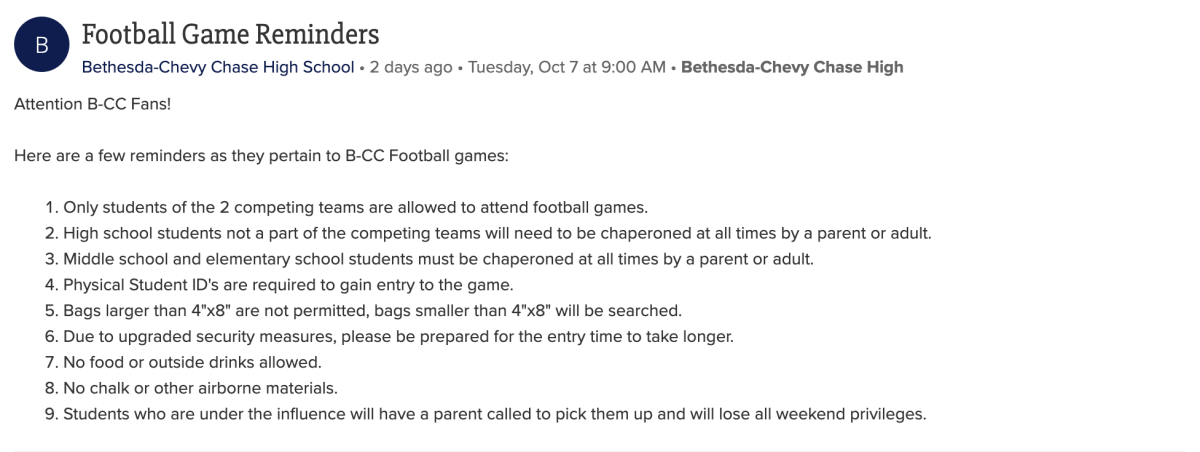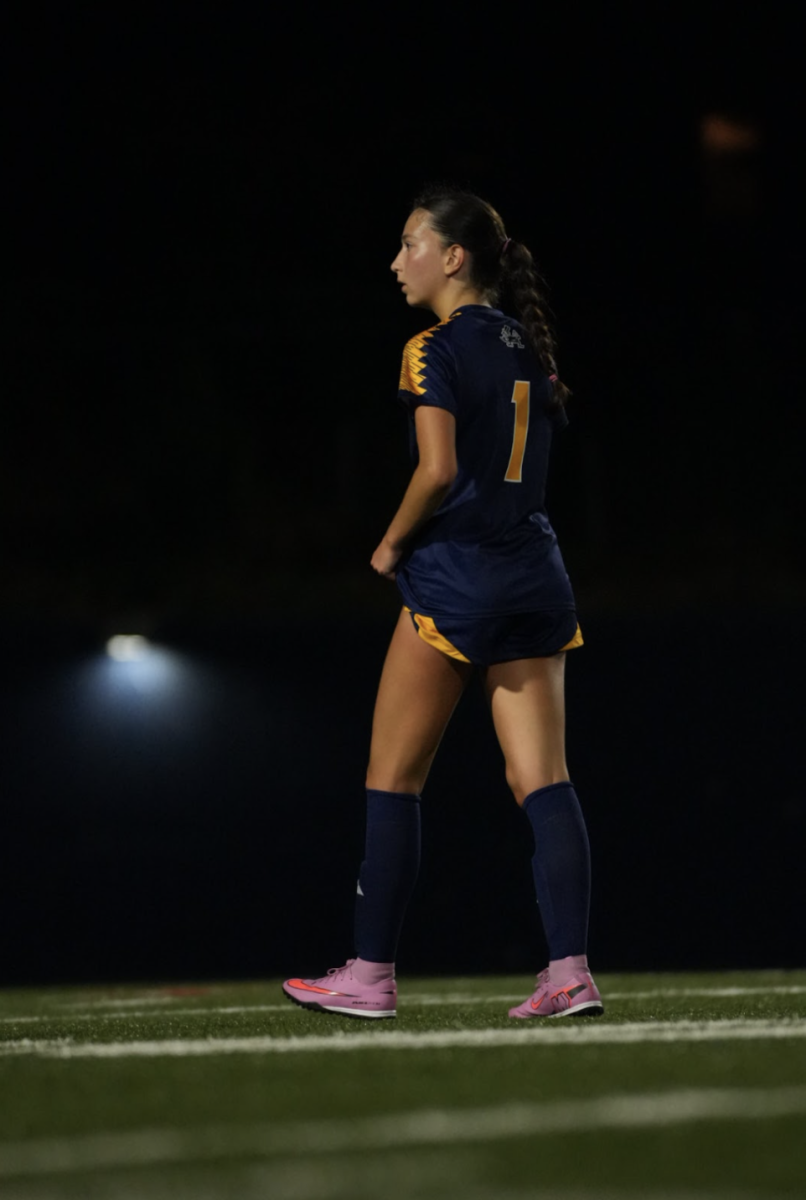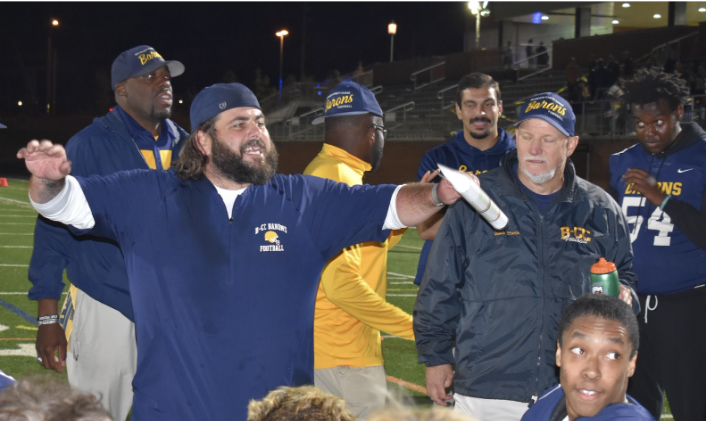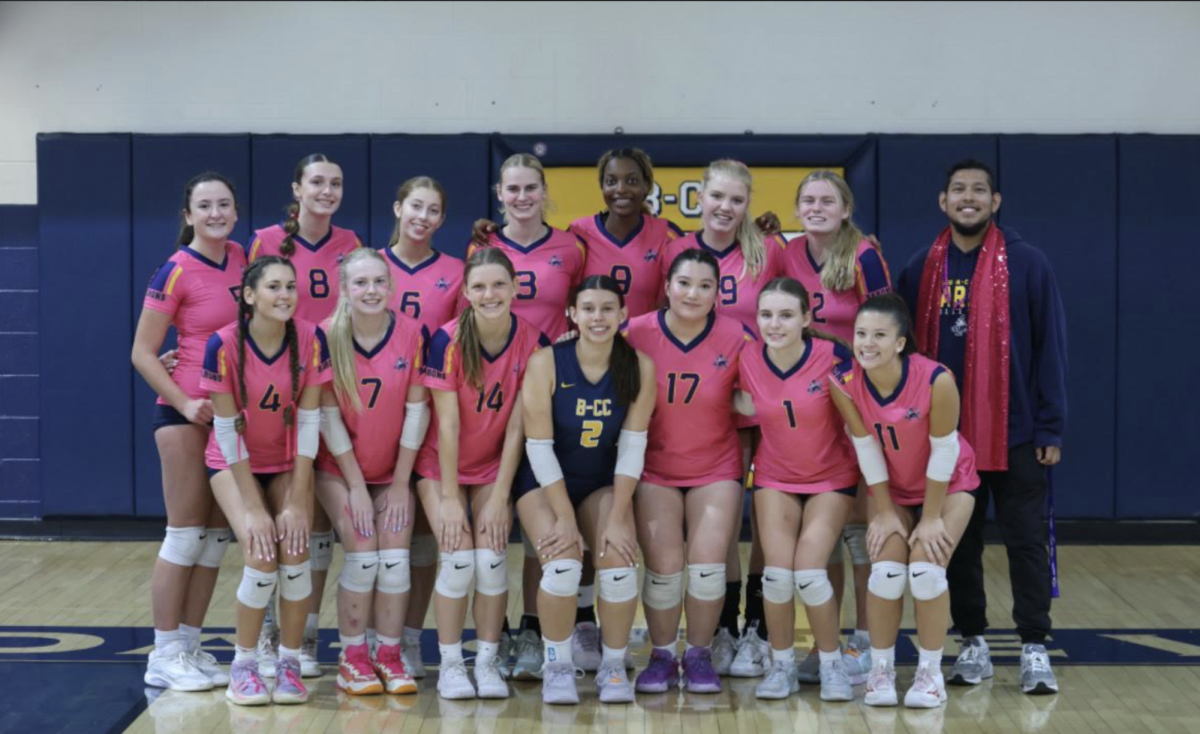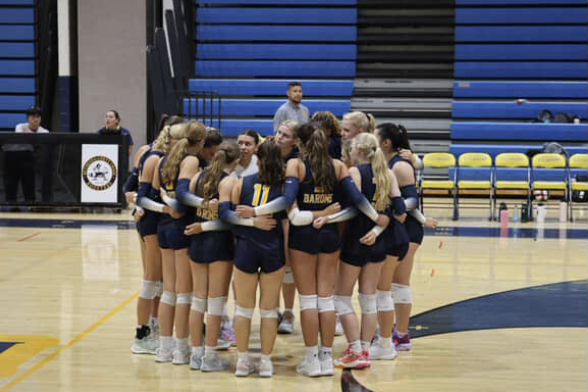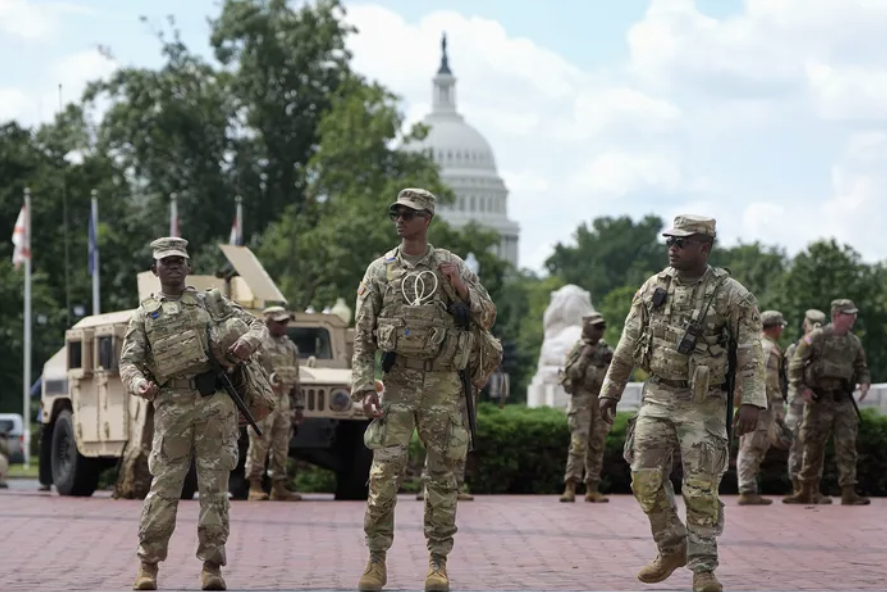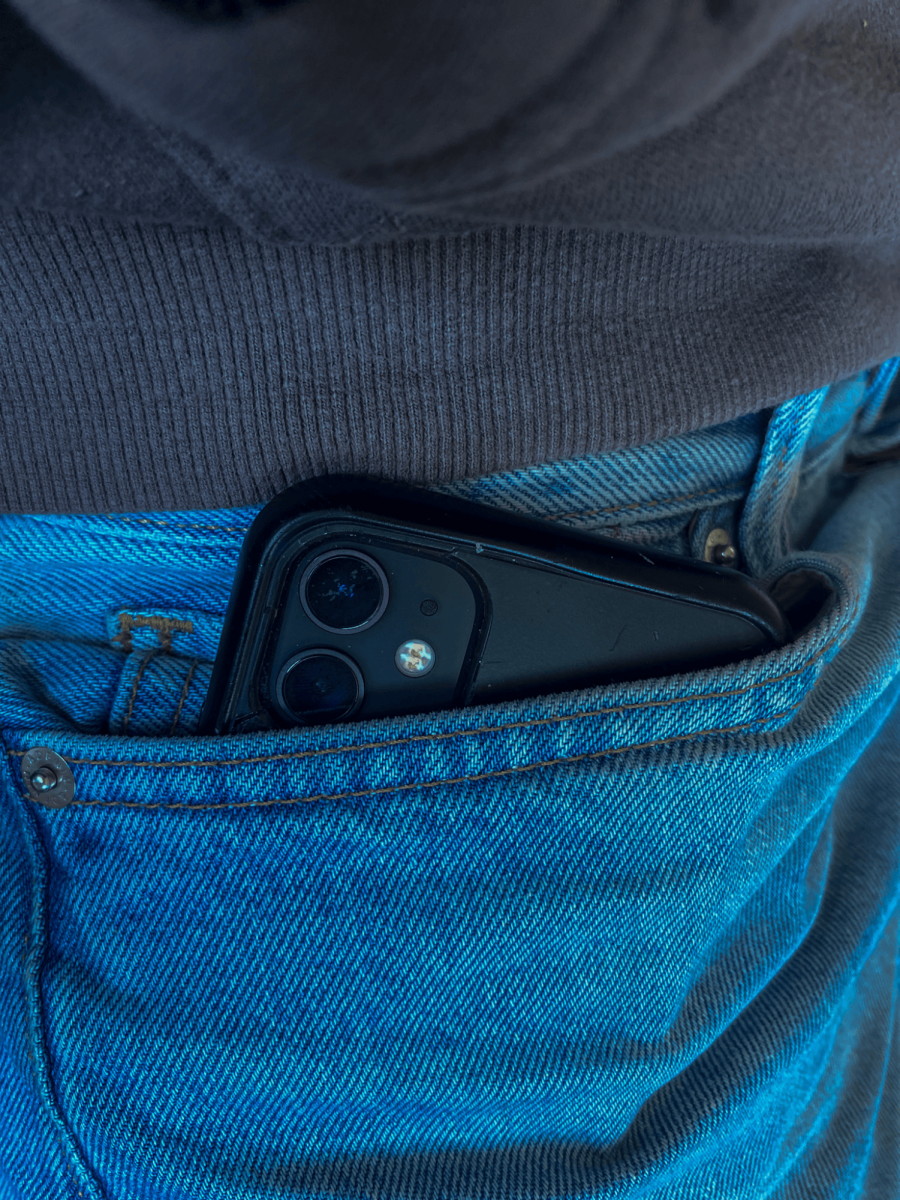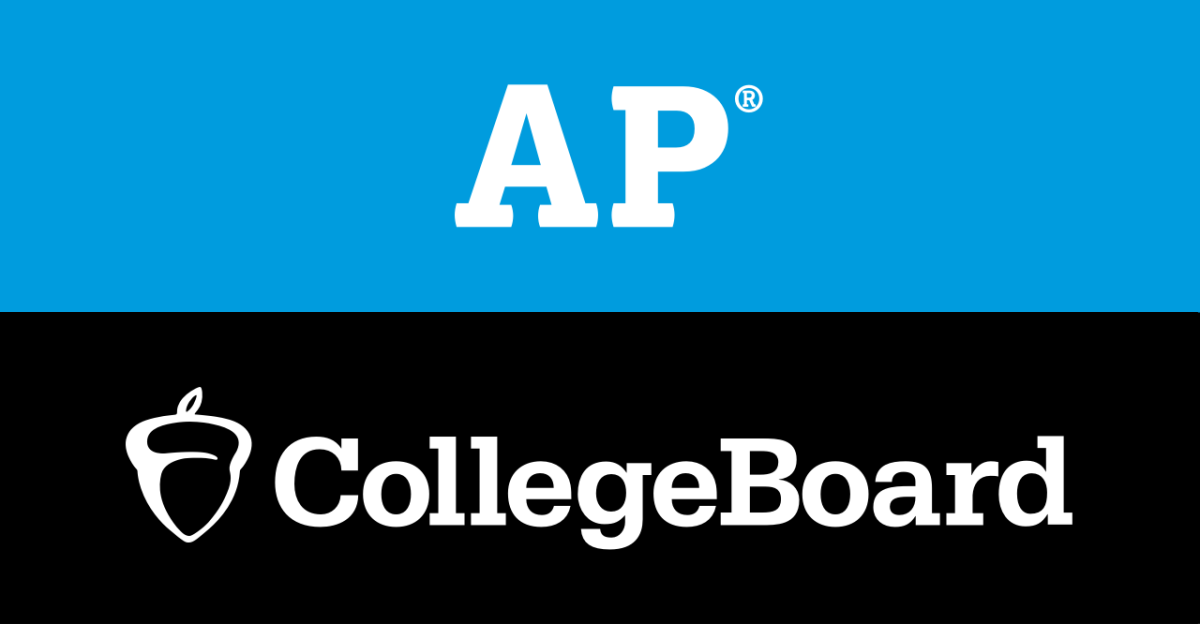During an MCPS town hall in February, B-CC SGA Vice President Luka Sarecevic called for an end to the cell phone bans piloted in some MCPS schools. While the policies have received support from teachers and Parent-Teacher Organizations, they have been widely opposed by students. Vice President Sarecevic argued that students need to contact parents in emergencies, and that implementing a full cell phone ban would be “unacceptable.” While these policies have proven effective in reducing student cell phone use, many students and parents are still concerned about unintended consequences of the policies.
In the eight middle schools where the new policies are being piloted, when teachers catch students using cellphones
in class, the cell phone and student are both taken to the main office, the student’s parents are called, and the cell phone is kept until the end of the day. Upon the second infraction, parents must pick up the students’ cell phone from school instead. Upon the third infraction, the phone is kept until a meeting with a parent is scheduled, establishing a
plan for the student’s cell phone use for the rest of the year. MCPS has opted to move forward with implementing these policies for the 2025-2026 school year. They have also been supported by the Montgomery County Education Association.
Follow-through on students infractions would require parents to miss work, possibly putting their jobs at risk. While parents in higher-income positions, with more control over their time, might not have trouble leaving work to meet with school administrators, parents with little control over their working hours may be disciplined or possibly fired for missing parts of their shifts.
When asked about the pilot, Silver Creek Middle School Science and Technology teacher Andrew Brodeur stated that this year, interruptions caused by cell phones occurred much less often, and that teachers spent less class time enforcing cell phone policies. The new policies allow each school administration to decide whether cell phones may be used during non-instructional time, and allow teachers to choose whether smartphones may be used during instructional time, usually for instructional purposes.
At Rockville High School, the one high school where a new cell phone policy is being piloted, regulations are more lenient. Upon the first infraction, students receive a warning, and from the second infraction onward, their phones are stored in a magnetic pouch that the student keeps with them for the rest of the day, with the fourth and fifth infractions resulting in parental contact.
While in theory, these policies are great ways to help students focus more in class, it’s not nearly as clear cut as it seems. B-CC’s most recent school-wide emergency was on February 25, when the school administration locked down the school for several hours, and then moved to a shelter in place. Many concerned parents reached out to their children, and students sought more information on the subject, like statements from the Montgomery County Police Department.
This incident was preceded by a lockdown at B-CC just six days prior on February 19, and a string of lockdowns in May 2024 at B-CC, Walt Whitman HS, and Bethesda ES. While cell phones prove a distraction in class, they provide a way for parents to check on their children’s well-being and for students to stay informed about the nature of emergencies. While many are concerned that student cell phones may flash or make noise, distressed students can make just as much noise as cell phones, if not more. Students could also be instructed to turn off their ringers or put their cell phones in do not disturb mode during an emergency.
In conclusion, obstructing access to cell phones and being unable to lift it during emergencies could cause students and parents to stress. In conclusion, any amendment to existing MCPS cell phone policy should consider feasibility, student safety, legitimate student and parental interest in staying connected during emergencies, and the negative consequences for students and families of additional disciplinary measures. While the objective of having students more focused on school and improving teacher morale are both important, MCPS must carefully weigh any potential negative consequences of a stricter PMD policy against its benefits.



